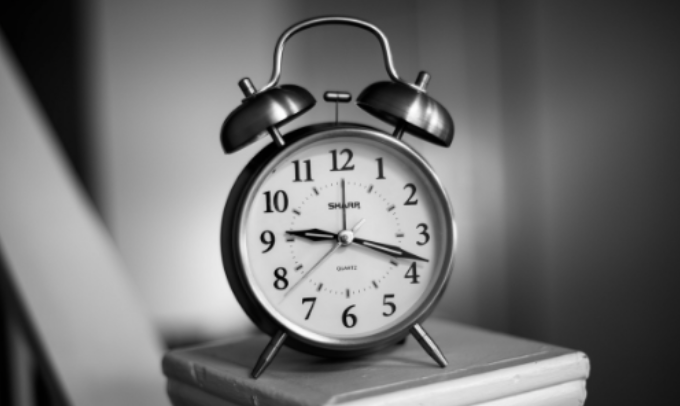SLEEP AND PERFORMANCE
How many times have you stayed up late to finish work or to watch just one more episode of your favorite show? Or, even worse, how many times have you tried to fall asleep, but end up lying awake, staring at the ceiling?
If this sounds like you, you may be missing out on your full potential.
Sleep is absolutely essential for us to survive, playing a fundamental role in our behavior and performance. With such poor awareness of the importance of sleep, athletes can view sleep almost as a secret weapon when it comes to training, competition, recovery, and performance.
“Sleep is the greatest legal performance enhancing drug that most people are probably neglecting” - Dr. Matthew Walker, PhD, author of Why We Sleep.
What is it about sleep that helps us so much?
Humans are the only living creature that voluntarily chooses to skip out on sleep, thinking it will help them get ahead of their long to do list. But this couldn’t be further from the truth.
There is an undeniable amount of research on sleep and the positive effects on overall health and wellness. Sleep is even gaining popularity in being considered another vital sign for humans to monitor.
While we may think our bodies are just lying there quietly throughout the night, our internal processes are actually working to help us recover from the daily demands of normal life and from training.
Sleep is a critical period of recovery for our systems that are stressed during exercise. This includes our cardiovascular, neurological, and muscular systems, as well as many other functions such as our immune system and our metabolism. Nerves are literally regenerated, collagen is being laid down, and tissues are healing while we sleep.
Without adequate sleep, even our pain threshold can increase and we can begin to note a decline in other important areas of our life, including our mental health. With poor quality sleep we will experience a decline in our cognitive function, ability to process information, productivity, and memory. We are also at a greater risk of accident, injury, depression, anxiety, and a decrease in quality of life.
From a health standpoint, those of us that are chronically lacking adequate sleep, are at risk for many health problems, including heart disease, hypertension, diabetes, and dementia.
It is almost surreal how something so impactful can be taken so lightly every single day. It is no wonder that sleep can affect performance, especially as an athlete as athlete’s go through much more physical and mental stress on a weekly basis.
Tissue Healing and Heart Health
During sleep, our bodies form more immune cells while our sympathetic nervous system, our stressful, flight or fight response is quieted. This lessens our inflammatory response and allows the body to work on healing tissues, including muscles, nerves, and joints that are involved during your workouts.
Research speculates that the sympathetic nervous is also involved in the increased risk of heart disease from a lack of adequate sleep. If we are sleep deprived, we are spending more time in the flight or fight response, meaning we also experience higher levels of blood pressure and heart rate, which can lead to heart disease.
Pain
It may be easy to assume that if you are experiencing pain, it may interfere with your sleep. But recent studies have found that sleep disturbance actually predicts pain to a greater degree than pain predicts sleep disturbances. Yes, you read that right. A lack of sleep can actually cause more pain!
Depression and Anxiety
Depression and anxiety may increase when we are in periods of sleep deprivation due to a lack of specific neurotransmitter activity that is related to the brain and emotional regulation. Nearly 75% of people with depression experience insomnia.
Cognitive Function
Most of us can say that we have experienced, first hand, the effects that poor sleep can have on our cognitive function and mental capacity. When it comes to cognitive function and athletic performance, working memory and attention. Lack of sleep can cause an athlete to not be fully present in training or competition, hindering their performance. Instead of quickly thinking ahead to their next move, watching their opponent, or being fully aware of their surrounding environment, they are left moving and thinking slowly, at risk of underperforming or sustaining an injury.
How much sleep do we need?
Eight hours in a good rule of thumb, and an easier number of hours to shoot for if you are currently used to sleeping less than that. Eight hours is considered a baseline for health, normal functioning. But for highly active individuals, 9-11 hours is recommended for improved recovery and performance.
Elite athletes sleep nearly half of their day away. Training, eating, and sleep are their top priority, and for good reason. Sleep is a healthy drug that we can use to improve recovery and healing while reducing pain and improving performance.
Unfortunately, many Americans under sleep, around less than 6 hours a night. Most also have poor sleep hygiene which impacts sleep quality and quantity.
Sleep Hygiene
Wondering what sleep hygiene is? It is ensuring that your environment and nightly routine sets you up for success when it comes to getting to sleep and staying asleep.
This can be as simple as going to sleep and waking up at the same time every single day and avoiding caffeinated beverages at least 4 hours before bed. Here is a list of simple sleep hygiene tips you can start implementing today to improve your performance!
● Use your bed only for sleep and relaxation. Don’t take work, food, or TV to bed.
● If you are unable to fall asleep within 20 minutes, leave the bed, do something relaxing until sleepy, and then return to bed.
● Develop a relaxing routine, take a warm bath, read a book, drink sleeping time tea.
● Avoid eating a large meal, drinking alcohol, or exercising vigorously for at least 3 hours before bed.
● Eliminate excessive lights and noise. Stop using light emitting electronics at least 30 minutes before bedtime, use ear plugs, light block curtains, and keep the temperature comfortable. Sixty degrees Fahrenheit is ideal.
As an athlete, it may actually be easier for you to fall asleep that others, due to the amount of energy you exert each day. After putting so much work into your training and nutrition, don’t skip over one of the other most important and valuable variables, your sleep.
You really cannot make up sleep on the weekend, it is impossible to catch up on.
If you are feeling overwhelmed by your training and daily schedule and you feel like you cannot fit everything into a full day and still get 8 or more hours of sleep per night, reach out to one of our coaches or trainers at Elite Performance to help improve your training efficiency and optimize your sleep.
References
https://pubmed.ncbi.nlm.nih.gov/28789471/
https://www.ncbi.nlm.nih.gov/pmc/articles/PMC5832516/
https://www.sciencedirect.com/science/article/abs/pii/S0031938406003969


